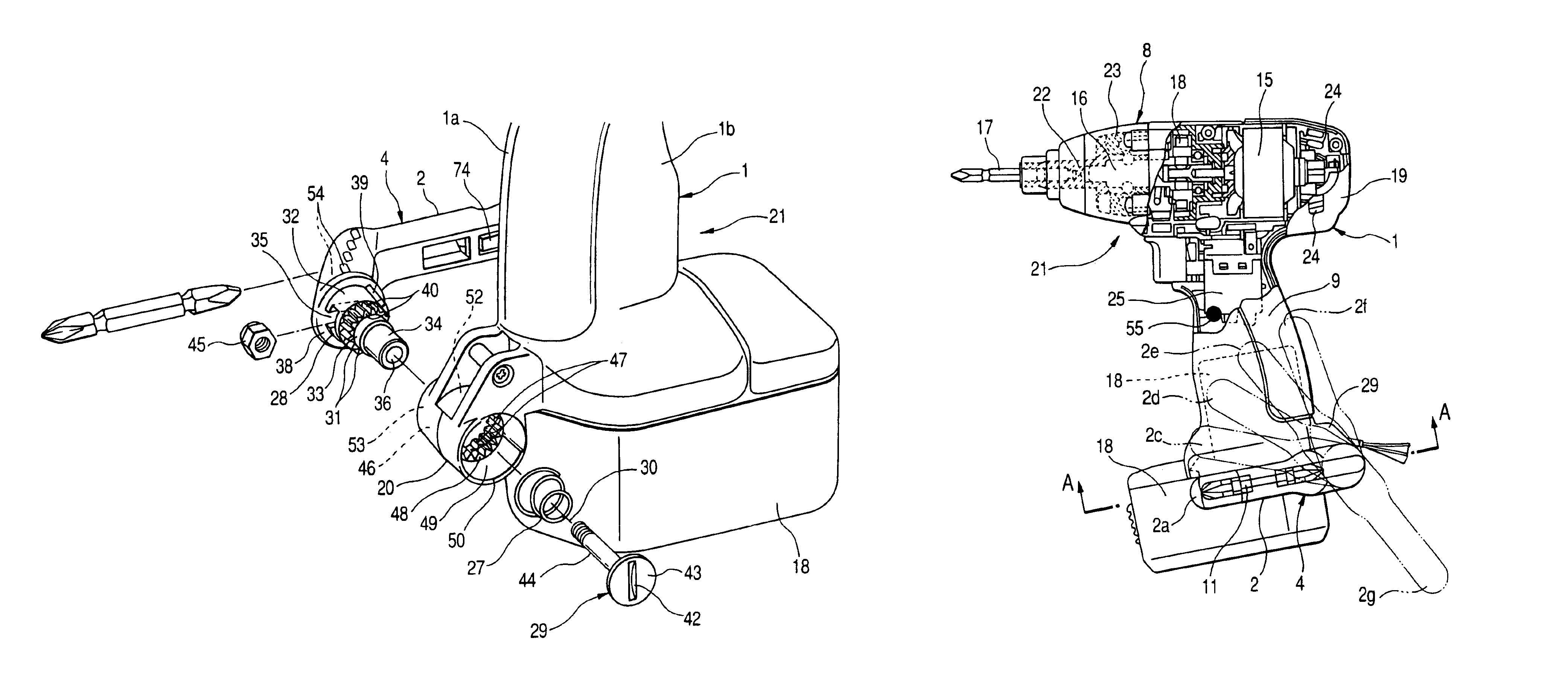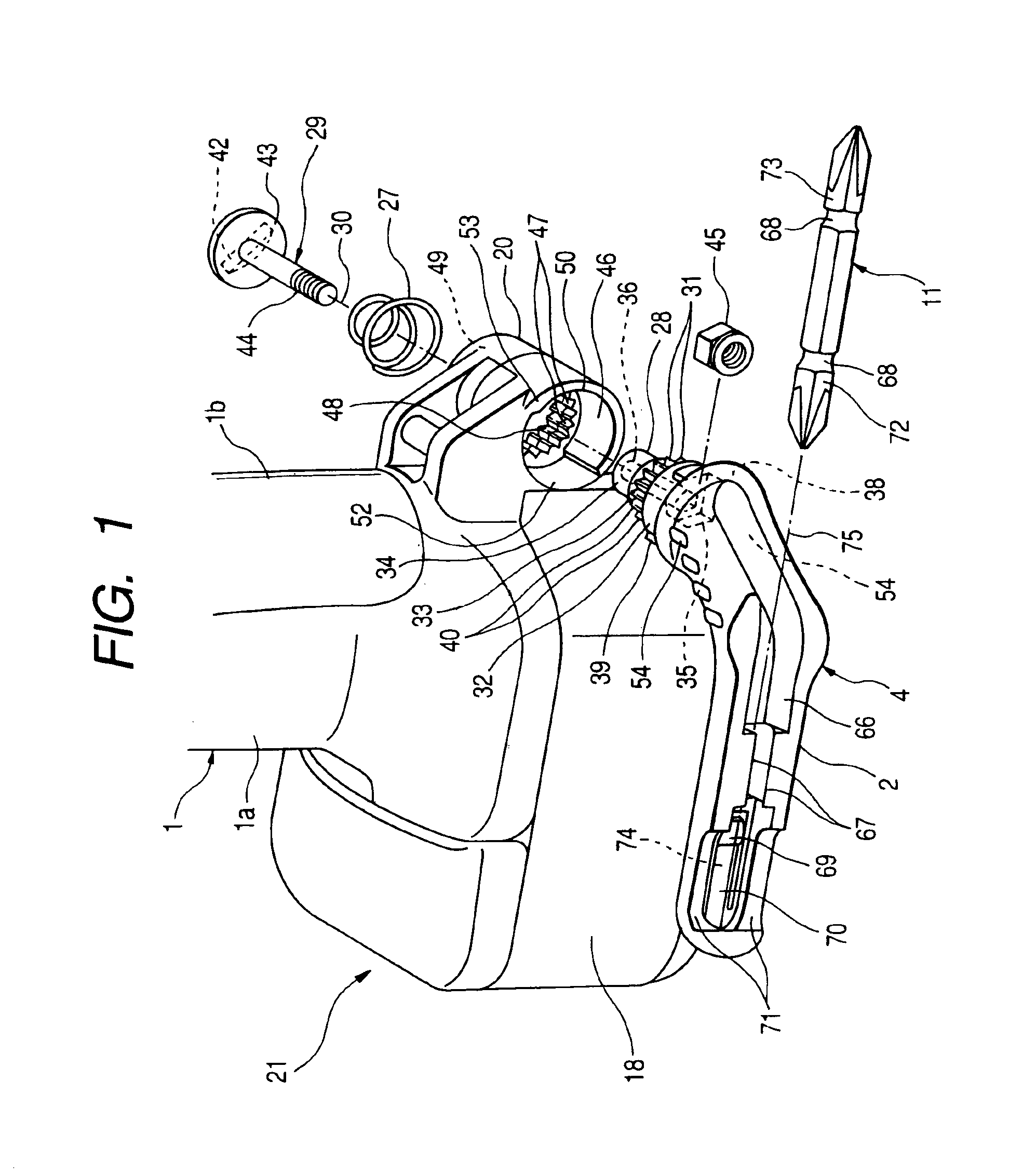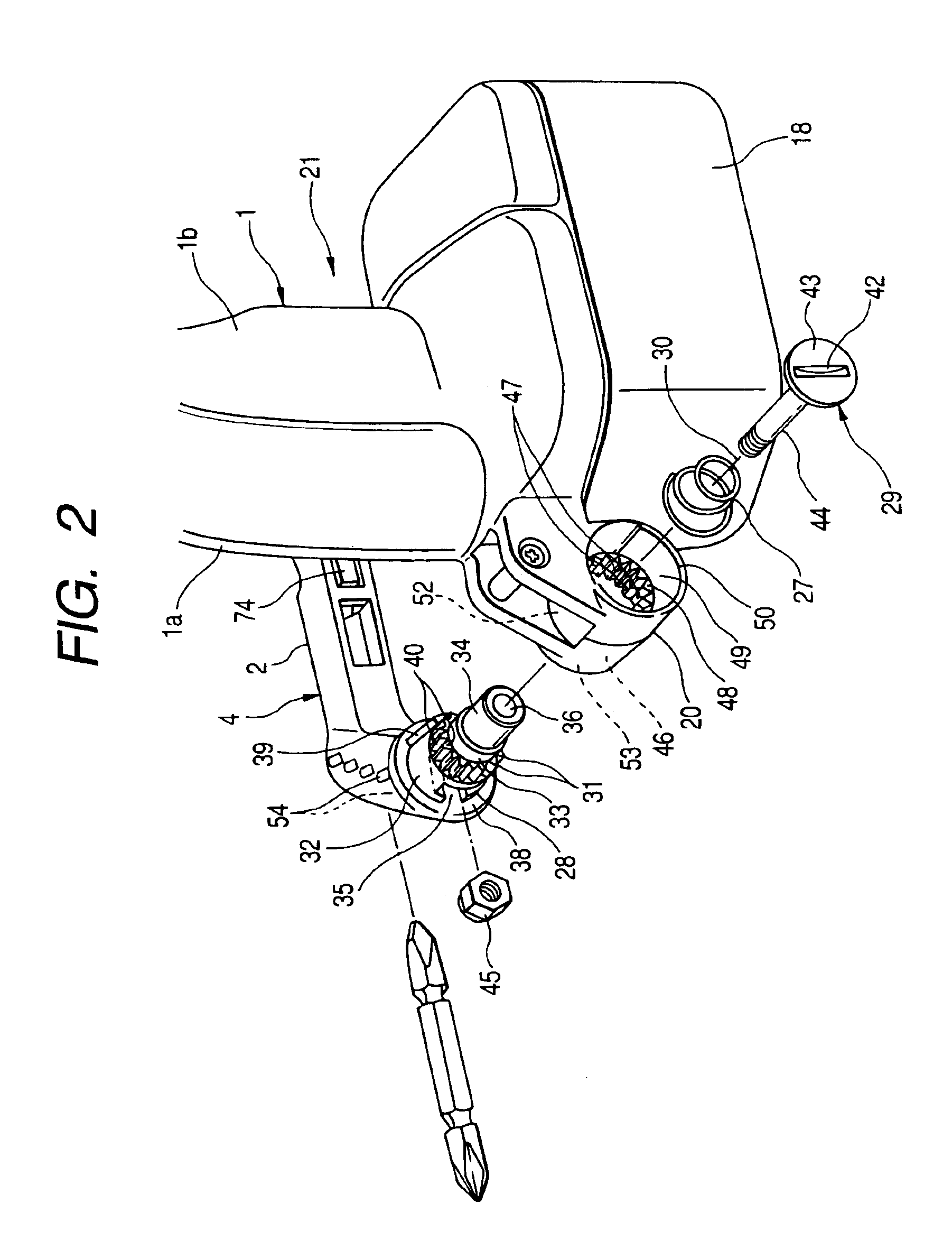Power tool
a technology of power tools and hooks, applied in the direction of spanners, drills, wrenches, etc., can solve the problems of lowering workability, affecting the operation of operators, missing hook parts, etc., and achieves the effect of easy change of the position of the hook and excelling in operability
- Summary
- Abstract
- Description
- Claims
- Application Information
AI Technical Summary
Benefits of technology
Problems solved by technology
Method used
Image
Examples
Embodiment Construction
[0037]A power tool, such as an impact driver, according to an embodiment of the invention is described hereinbelow with reference to FIGS. 1 to 16. FIG. 1 is an exploded perspective view illustrating a primary part of a hook portion of a power tool according to the invention. FIG. 2 is an exploded perspective view illustrating the primary part of the hook portion of the power tool according to the invention.
[0038]FIGS. 3A, 3B, and 3C illustrate a moving state of the hook portion according to the invention and are a plan view, a side view, and a bottom view thereof, respectively. FIGS. 4A and 4B are sectional views taken on line A—A of FIG. 3A. FIG. 5 is a sectional view illustrating a state of the hook portion moved in a direction, in which a spring 27 is compressed, according to the invention, and taken on line A—A of FIG. 3A. FIG. 6 is an external perspective view illustrating a state in which the hook portion according to the invention is attached to the opposite side of the powe...
PUM
| Property | Measurement | Unit |
|---|---|---|
| radius | aaaaa | aaaaa |
| elastic | aaaaa | aaaaa |
| rotation power | aaaaa | aaaaa |
Abstract
Description
Claims
Application Information
 Login to View More
Login to View More - R&D
- Intellectual Property
- Life Sciences
- Materials
- Tech Scout
- Unparalleled Data Quality
- Higher Quality Content
- 60% Fewer Hallucinations
Browse by: Latest US Patents, China's latest patents, Technical Efficacy Thesaurus, Application Domain, Technology Topic, Popular Technical Reports.
© 2025 PatSnap. All rights reserved.Legal|Privacy policy|Modern Slavery Act Transparency Statement|Sitemap|About US| Contact US: help@patsnap.com



